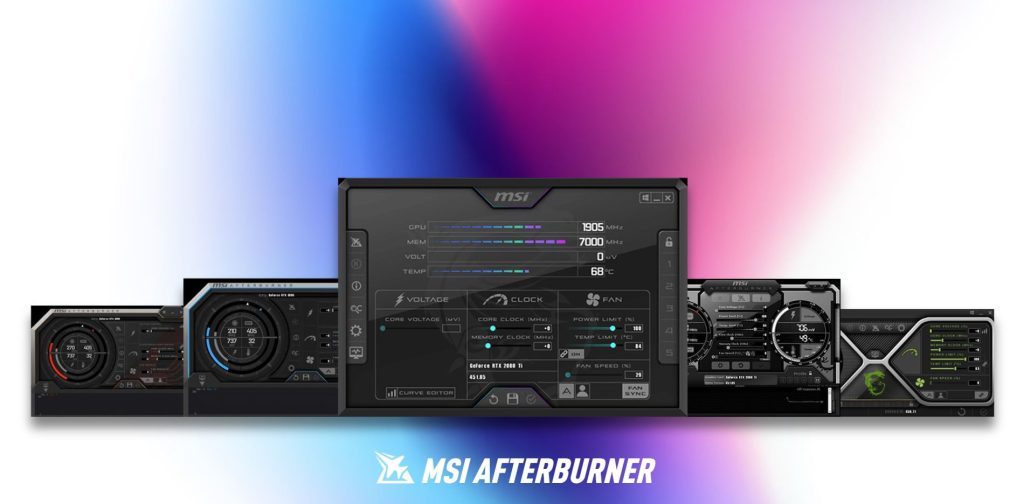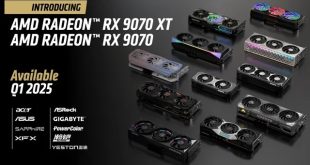MSI Afterburner has been a household name in the world of graphics card overclocking for years. Its easy-to-use interface has managed to attract both novice and advanced users alike. However, the tool faced a setback last year due to complications between MSI and the programmer, leading to uncertainty over the future development of the software. Fortunately, that uncertainty has come to an end, with Afterburner getting finally getting a new stable release.
The tool has seen several beta releases during this time, but this latest release marks a significant milestone as it is a stable release. One of the most significant changes in this release is the official support for the GeForce RTX 40 and Radeon RX 7900 series graphics cards. While these features were available in the beta release, their inclusion in a stable release is a crucial step forward in the development of Afterburner.

But that's not all. The latest Afterburner release boasts several other new features, including support for Intel 13th Gen, AMD Ryzen 7000 CPUs, and undisclosed hardware yet to be announced. Additionally, the software now supports Intel Arc GPU monitoring, although overclocking features are yet to be implemented. The complete list of patch notes of MSI Afterburner 4.6.5 stable goes like this:
- Added Nvidia GeForce RTX 40×0 series graphics cards support
- Added voltage control support for GA103 and GDDR6x-based versions of NVIDIA GeForce RTX 3060 Ti
- Added AMD Radeon RX 7900 series graphics cards support
- Added total board power monitoring support for AMD Radeon RX 7900 series graphics cards
- Added some future AMD and Nvidia GPU PCI DeviceIDs to the hardware database
- Added Intel Arc GPUs support to the hardware monitoring module. Please take note that Intel Arc GPU overclocking and tuning is currently not supported due to Intel hardware control API support limitation to x64 applications only
- Added experimental support for Intel 13th generation CPUs
- Added experimental support for AMD Ryzen 7xxx CPUs
- CPU usage data sources in the hardware monitoring module have been switched to an alternate implementation based on NtQuerySystemInformation (SystemProcessorIdleInformation) because traditional legacy idle time reporting in NtQuerySystemInformation (SystemProcessorPerformanceInformation) is broken in current Windows 11 22H2 builds
- Added workaround for broken fixed fan speed programming API (Overdrive 5 compatible fallback path) for old Overdrive 7 GCN GPUs on 22.5.2 and newer AMD drivers
- Added config file switch for disabling native reliability voltage control API on Nvidia GeForce GTX 9×0 series graphics cards and forcing legacy P-state 2.0 voltage control API usage on such hardware. Power users may use this switch to bypass the voltage control lock on NVIDIA Maxwell series graphics cards on release 515 and newer drivers families
- Improved correction formula parser with data format conversion, rounding and min/max functions support
- Added OCMailbox-based bus clock frequency monitoring for Skylake and newer Intel CPUs. Unlike traditional legacy timestamp clock-based bus clock frequency estimations, OCMailbox provides support for overclocked BCLK monitoring. Please take note that access to OCMailbox is blocked by design of the OS when HVCI is enabled
- Improved SMART.dll monitoring plugin. Added temperature monitoring support for NVMe devices, including the secondary controller temperature for some Samsung NVMe drives
- The default clock frequency limit of the voltage/frequency curve editor window has been extended to 3.5GHz. Please take note that you may still customize the limits via the config file if necessary
- Update server location changed to new URL inside update checking system. The old update server location reached EOL
It has been four years since MSI Afterburner got a new stable release. Of course, we could always use one of the many beta releases, but you're more prone to find annoying bugs on these. You can download the latest stable release on Guru3D or MSI.
Discuss on our Facebook page, HERE.
KitGuru says: Do you use MSI Afterburner? Will you update the app for the latest stable release?
 KitGuru KitGuru.net – Tech News | Hardware News | Hardware Reviews | IOS | Mobile | Gaming | Graphics Cards
KitGuru KitGuru.net – Tech News | Hardware News | Hardware Reviews | IOS | Mobile | Gaming | Graphics Cards

